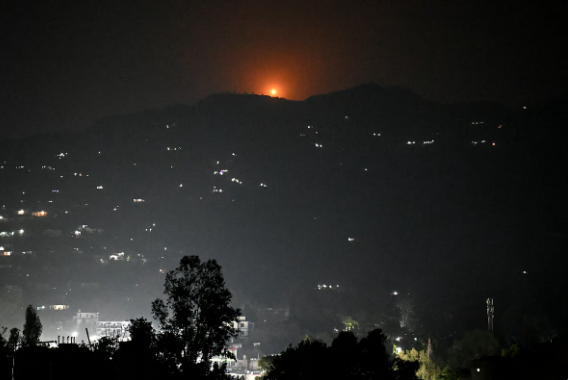India launched a series of targeted military strikes inside Pakistan early Wednesday, sharply escalating tensions between the two nuclear-armed neighbours following last month’s deadly attack on civilians in Pahalgam, Kashmir.
Dubbed Operation Sindoor, the Indian offensive targeted nine locations across Pakistan and Pakistan-administered Kashmir, striking what India claims were terrorist infrastructure sites linked to the Jaish-e-Mohammed and Lashkar-e-Taiba militant groups. Pakistan’s military reported that at least eight people were killed and 35 others injured in the attacks.
India’s Ministry of Defence described the action as a “precise and restrained response” to the April 22 Pahalgam attack, in which 26 Hindu pilgrims were killed. The ministry stated that no Pakistani military facilities were targeted and that the operation was designed to minimize civilian casualties.
The operation’s name, Sindoor, holds symbolic meaning—referring to the red vermilion worn by married Hindu women. The choice of name appears to underscore the impact of the Pahalgam attack on the families of the victims, many of whom were women widowed in the violence.
Indian media sources reported that the strikes focused on areas believed to house top militant leaders, including sites in Bahawalpur, Muridke, and Sialkot. Pakistan, however, has strongly rejected the Indian narrative, with Defence Minister Khawaja Muhammad Asif stating that all targeted sites were civilian, not militant facilities.
Prime Minister Shehbaz Sharif condemned the strikes as “unprovoked” and “cowardly,” vowing retaliation “at a time of our choosing.” In response to what it called “indiscriminate shelling” by Pakistan, India reported three civilian deaths on its side of the Line of Control (LoC).
The attack marks the most serious military confrontation between India and Pakistan in years. Both countries have fought multiple wars since their independence in 1947, many centered on the disputed Kashmir region.
International leaders have reacted with concern. UN Secretary-General António Guterres urged both sides to exercise “maximum restraint,” while U.S. President Donald Trump expressed hope that the situation would “end very quickly.” UAE Foreign Minister Sheikh Abdullah bin Zayed Al Nahyan also called for calm and emphasized the importance of dialogue.
Meanwhile, South Asian communities in the UAE and across the globe watched anxiously as developments unfolded overnight, fearful of a deeper conflict.
As both sides brace for further developments, the risk of broader confrontation remains dangerously high.



